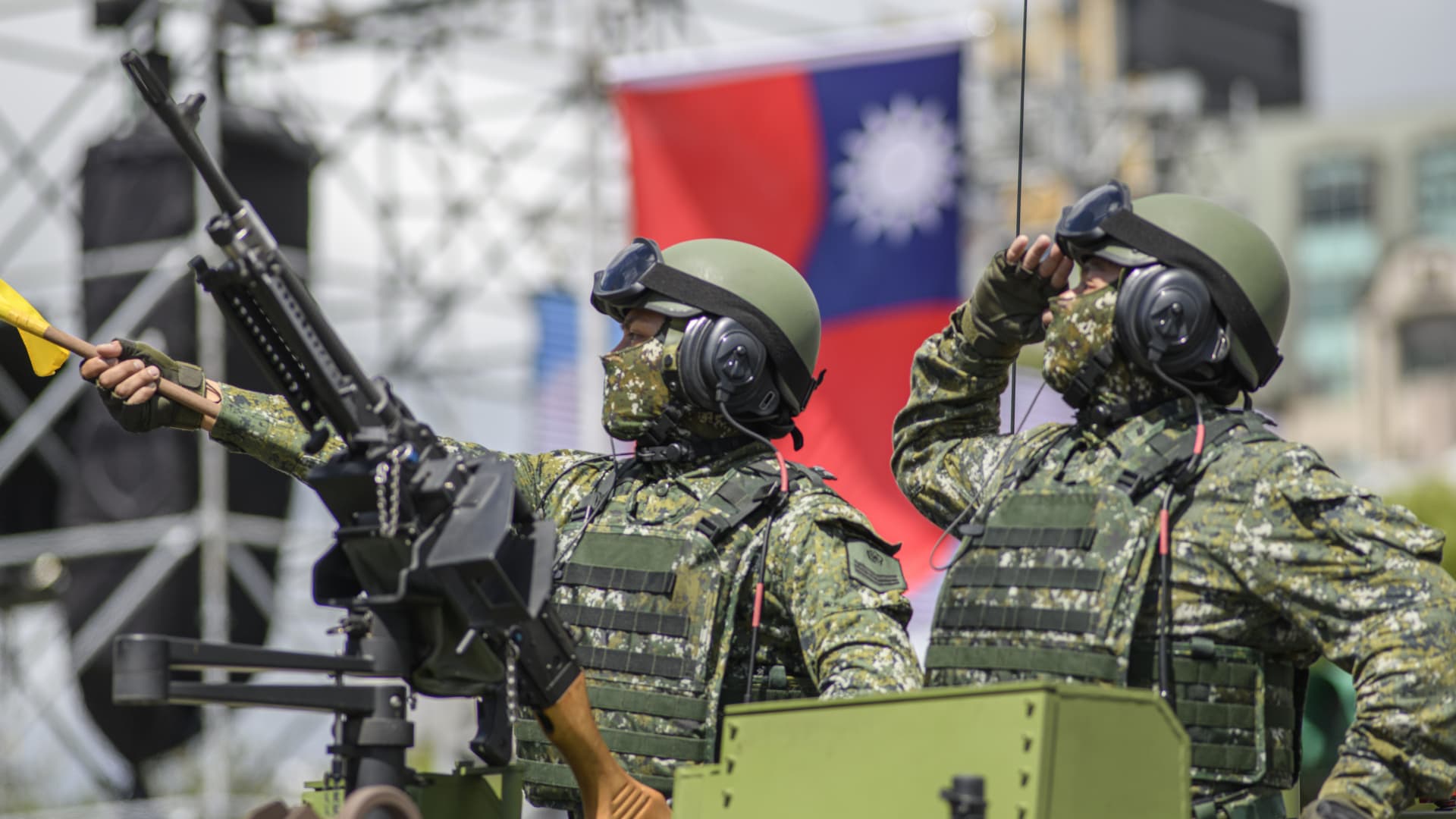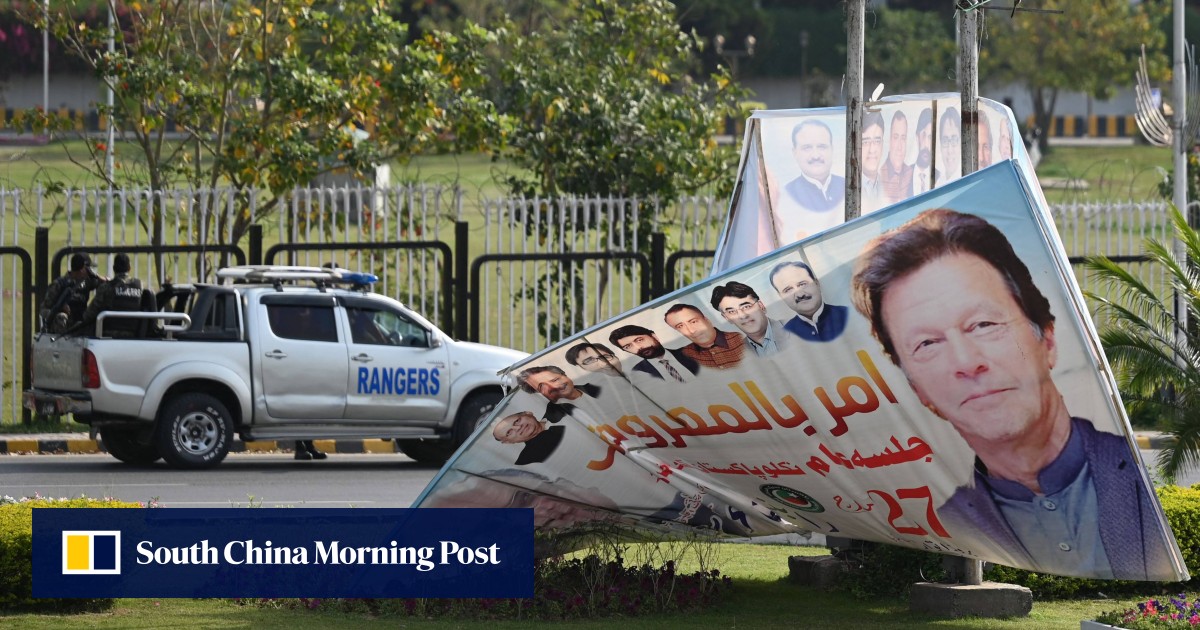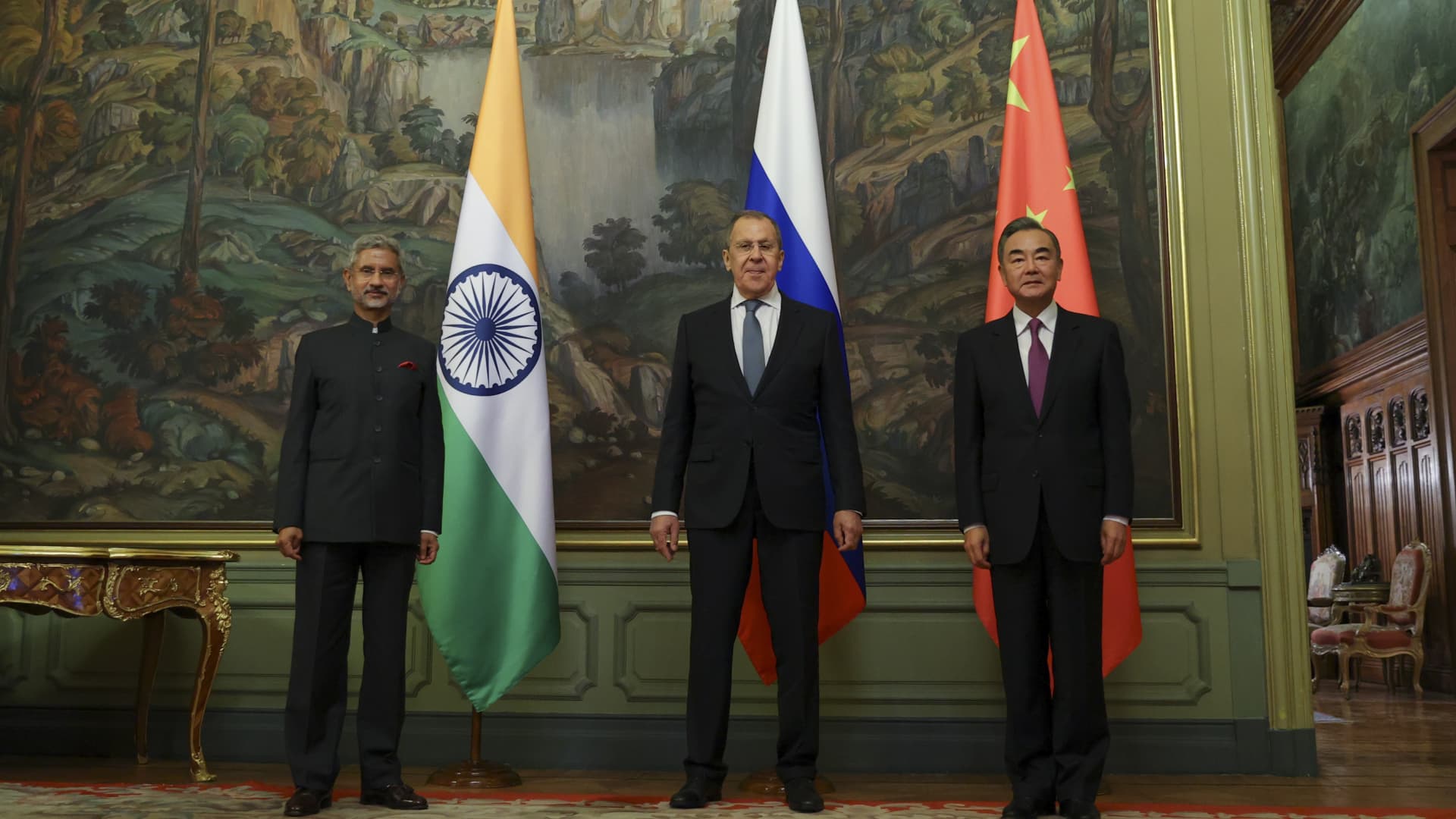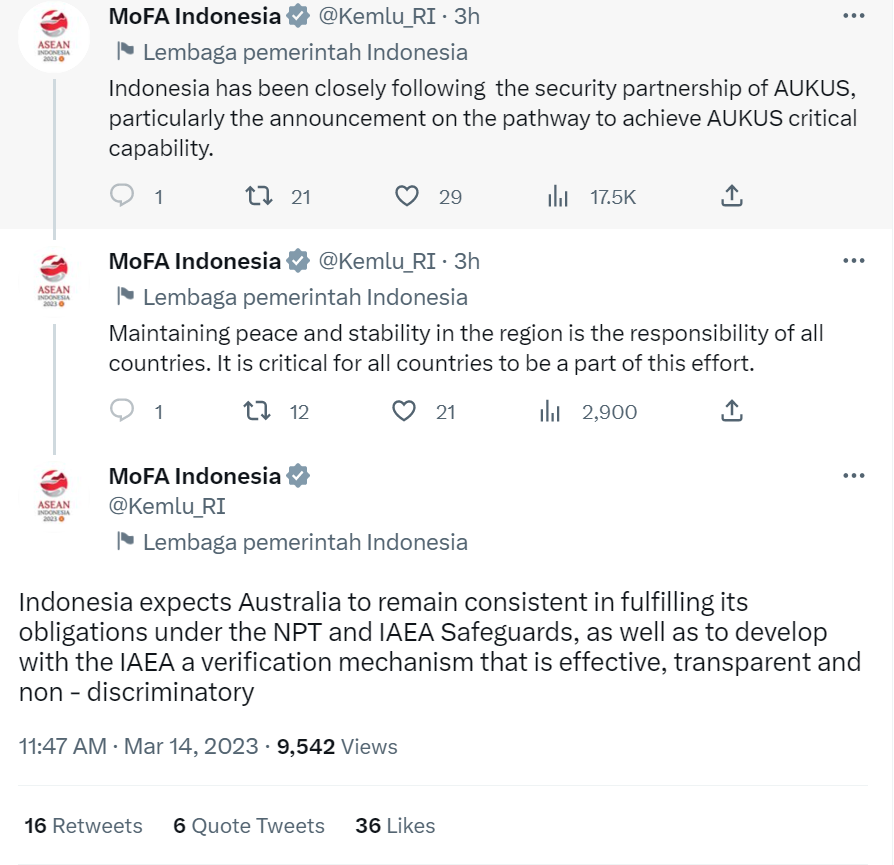samo ti gledaj... ogromen del od naselenito saka sa se spoi so kina,ostaj sto se zbori na tvТоа никогаш нема да се случи, Тајван не се прокинези него оригинал кинези, нема нит некаква назнака за такво нешто.
Ќе скрши џамче Кина, лаат 70 години и уште немаат преземено чекор, гомилање на трупи на брег лесно се детектира, имаш милион лажни цели по Тајван цел остров е како тврдина, така е тоа прв бран и отиде ПВОИмаат свои крстаречки ракети, не зависат многу од странство за достава на опрема.
Кој тоа слој население и како би сакале да се припојат со Кина па чак да дигаат револуција, кога веќе имаат засебен идентитет, млади се осјечале ко Тајванци, имаат доволно оружје, опрема и муниција, ете нешто Кина сега гради десантни бродови од поголеми размери ама се смета дека тек од 2025 би имале каква таква можност за агресија, јасно е зошто лаат само, знаат дека ќе се избламираат пред свет засекогаш со евентуален неуспех.
.
Taiwan won't start a war with China but will defend itself 'full on,' say defense minister
Taiwan will not start a war with China but will defend itself "full on", Defence Minister Chiu Kuo-cheng said on Thursday, referring to a spike in tensions.www.cnbc.com
Кина освен целоцна окупација на островот нема друга опција, се друго ќе биде блам.
Геополитички (ре)структуирања на далечен исток
- Креатор на темата jamajka
- Време на започнување
The xx
Russia state-affiliated bot. ☑️
- Член од
- 8 април 2013
- Мислења
- 6.016
- Поени од реакции
- 11.204
Сум ја утнал темата. Ми се прочита блиски истокСе поблиску се до нуклеарен договор со Иран. Се надевам до максимум ќе ја искористи Иран можноста. ЕУ и САД неможат со ништо да ги уценуваат.

- Член од
- 14 ноември 2013
- Мислења
- 6.372
- Поени од реакции
- 19.959
Американската дипломатија е тотално одлепена, тераат со или си со нас или против нас стратегија. Тоа води да бидат константно изненадени од ситуации кои се очигледни на секој кој живее во оваа реалност. Имено Американците (како и ЕУ) се тотално изненадени за тоа како се осмелуваат "инфериорните" раси и држави да одат контра нив и да гледаат нивни интереси. И стандард шема, закани со санкции, војни, дестабилизирања.
Во Пакистан се обидоа да го тргнат Премиерот преку гласање недоверба но тој го распушти Парламентот и свика предвремени избори каде што се очекува да победи.

 www.scmp.com
www.scmp.com
Шизофрениве во ЕУ се однесуваат кон Кина ко небаре сме во 19 век, тотално одлепени од реалноста како и секогаш.

 www.cnbc.com
www.cnbc.com
Добра анализа со која се сложувам, идеолошкото водење на дипломатијата ги оддалечува од АСЕАН.
Cracks emerge in America's 'Indo-Pacific' approach as Ukraine conflict takes its toll
Во Пакистан се обидоа да го тргнат Премиерот преку гласање недоверба но тој го распушти Парламентот и свика предвремени избори каде што се очекува да победи.

Pakistan’s embattled Khan gets reprieve as parliament rejects no-confidence vote
Fresh elections will be held in 90 days, after Imran Khan advised the president to dissolve parliament.
Шизофрениве во ЕУ се однесуваат кон Кина ко небаре сме во 19 век, тотално одлепени од реалноста како и секогаш.

India is snapping up cheap Russian oil, and China could be next
There's been a "significant uptick" in Russian oil deliveries bound for India since March after Russia's invasion of Ukraine, industry observers say.
Добра анализа со која се сложувам, идеолошкото водење на дипломатијата ги оддалечува од АСЕАН.
Cracks emerge in America's 'Indo-Pacific' approach as Ukraine conflict takes its toll
Several years ago, the United States affirmed that the region of the so-called "Indo-Pacific" a broad swathe of oceanic space which extends from the East Coast of Africa, across the Indian subcontinent, the Pacific and all the way to the coasts of California, would be the ultimate foreign policy priority and the strategic future of the United States. Placing maximum emphasis on building partnerships through this region, it is unpronounced that America's ultimate goal is to uphold its traditional dominance over this region and contain the rise of China. It has taken a multifaceted approach, including the creation of partnerships such as the "Quad" (With Australia, India, Japan), the AUKUS military bloc, striving to strengthen its ties with Southeast Asian countries, and increasing its military overall presence.
However, politics is always a story of how unexpected twists and turns ensure things don't quite go to plan. Whilst the Biden administration seemingly gained momentum on some of these initiatives across 2021, the first few months of 2022 have been another matter. Russia's war in Ukraine effectively threw America's "Indo-Pacific" initiative off balance by initiating large-scale geopolitical consequences which appear to be changing the picture. The past two days have heralded two significant developments in this area. First of all, China's foreign minister Wang Yi made an official visit to India, the first since the deadly border skirmish of 2020, which sought to begin a reset in ties between Beijing and New Delhi.
The visit of course wasn't a complete resolution to this dispute, which India made clear, yet it was an unmistakable chip hammered into the unity of the quad which was made possible by both countries being on the same page on Russia, which created an opening for reproachment. New Delhi has like Beijing, been unwilling to condemn Moscow or cede economic ties with it by submitting to western sanctions. This environment ultimately reminds China that India is not a mere "lackey" or "puppet state" of the United States, but ultimately pursues an independent foreign policy which strives to preserve strategic autonomy, meaning there is space to make amends between the two.
The second major development across the weekend was that the news broke, as reported by Politico, that the US-ASEAN summit, an event where Joe Biden sought to host the leaders of all 10 Southeast Asian countries, another staple of the "Indo-Pacific" strategy, had in fact been "indefinitely postponed", having been scheduled for the end of March. It was claimed in official White House rhetoric that the postponement was merely a "scheduling problem" based on the feasibility of getting all leaders together, but the behind-the-scenes touting of "indefinite" suggests obvious and undisclosed political problems at play. Instead, the US replaced it with a bilateral summit with Singapore, notable of course for being the only country in all Southeast Asia being willing to condemn or take any action against Russia.
What does this reveal? It reveals that Southeast Asian countries as a whole have become politically sensitive to such grandstanding summits at this time particularly because the United States would demand they make a statement on Russia and Ukraine, as well as other political requirements of an ideological nature, of which would compromise the collective neutrality of the bloc. ASEAN has been keen to engage with the United States on some fronts, but what America does not understand or consider in its strategy is that the bloc does not want to be forced to "side" or "choose" with any one particular country, and of course is very much aware the US is pushing them to do so.
Since the Ukraine war began, the Biden administration has in the typical American fashion sought to weaponize the crisis into a zero-sum ideological struggle of good vs. evil, or democracy vs. authoritarianism. Therefore, ASEAN states have subtly made distance with Washington in what would otherwise be described as a "snub". But there are also several other reasons why too. First of all, the US has given up its Trump era strategy of trying to engage Myanmar and last week formally accused it of "genocide" against the Rohingya people, a policy shift obviously influenced by the post-Ukraine context. The US would demand a tougher ASEAN condemnation of Myanmar at the summit, another strike against its political autonomy.
Finally, it is also worth noting that in 2022, ASEAN is being chaired by Cambodia, a country the US is targeting with sanctions, penalties and threats for seemingly being too close to China. Phnom Penh is undoubtedly the single most pro-China, anti-US state in the bloc, and therefore has an additional vested interest in politically disrupting it and being forced into taking positions by the US. This has subsequently added to the domino effect of growing political tensions with ASEAN above which has weakened the short-term scope for US diplomacy with this bloc.
In conclusion, the Ukraine war has unleashed a political context which is now taking its toll on America's Indo-Pacific strategy, on multiple fronts. The underlying theme? The fact that the United States is vesting its foreign policy on a zero-sum ideological approach, forcing countries to "choose" and subsequently attempting to push this position on countries who in fact, don't want to choose. The US is attempting to use ASEAN and India as lynchpins to a broad anti-China strategy, but had underestimated the desire of both parties to remain strategically independent even if they could find common interests. The crisis with Russia has exposed this discrepancy, ultimately weakening the vision for the "Indo-Pacific".
- Член од
- 28 декември 2015
- Мислења
- 3.391
- Поени од реакции
- 5.863
Интересно ќе биде каква поука ќе извлечат кинезите во поглед на Тајван во светло на руската агресија врз Украјина.
Доколку заклучат дека инвазија би била изводлива со реалистични можности за преземање на Тајван кон НР Кина, за очекување е во наредни 3-5 години (откако ќе ги завршат двата супер-носачи и некои десантни бродови) раководството на Кина да се реши за војна.
Тајван е со големина на Белгија и околу 26 милиони жители што значи дека нема простор за одбрана по длабочина, нивната тактика се темели на спречување на агресорот на направи мостобран било каде, во тој поглед и спречување на противничките пловила да дојдат блиску до брегот.
Ќе биде голем предизвик за кинезите да се истоварат на брег во рекреација на D-Day имајќи предвид дека Тајван се спрема за такво сценарио 60+ години.
Доколку заклучат дека инвазија би била изводлива со реалистични можности за преземање на Тајван кон НР Кина, за очекување е во наредни 3-5 години (откако ќе ги завршат двата супер-носачи и некои десантни бродови) раководството на Кина да се реши за војна.
Тајван е со големина на Белгија и околу 26 милиони жители што значи дека нема простор за одбрана по длабочина, нивната тактика се темели на спречување на агресорот на направи мостобран било каде, во тој поглед и спречување на противничките пловила да дојдат блиску до брегот.
Ќе биде голем предизвик за кинезите да се истоварат на брег во рекреација на D-Day имајќи предвид дека Тајван се спрема за такво сценарио 60+ години.
indonezija ima dobri relacii so kina i rusija. aus konstantno i pravi problemi prvo so istocen timor a sega i so zapadna papua. aus isto ima i vozduhoplovna baza do penang so koja prakticno moze da izvrsi pritisok i kontrola na prolazot na malaka. indonezija da stane igrac mora vo idnina da ja prodlaboci sorabotkata so malesija i singapur a za toa klucno ke bide kineskoto pa i indiskoto malcinstvo vo tie drzavi.Индонезија не е фан на АУКУС.

- Член од
- 14 ноември 2013
- Мислења
- 6.372
- Поени од реакции
- 19.959
Widodo urges Indonesia to abandon Visa, MasterCard to be 'independent'
As part of the new payment system launched last year, Indonesian President Joko Widodo called on Wednesday for his country to abandon the use of foreign payment networks like MasterCard and Visa and encouraged the public to adopt credit cards made by domestic banks.
At a local business gathering, Widodo emphasized that "everyone [in Indonesia] should be able to use" Indonesian-manufactured credit cards so that "we can be independent," as he explained that the aim is to avoid risking transactions in case of a geopolitical disruption that could economically affect the country.
- Член од
- 14 ноември 2013
- Мислења
- 6.372
- Поени од реакции
- 19.959

No need to continue depending on US dollar in investments - PM
'Negotiations between Malaysia and other countries should use currencies of both countries.'
